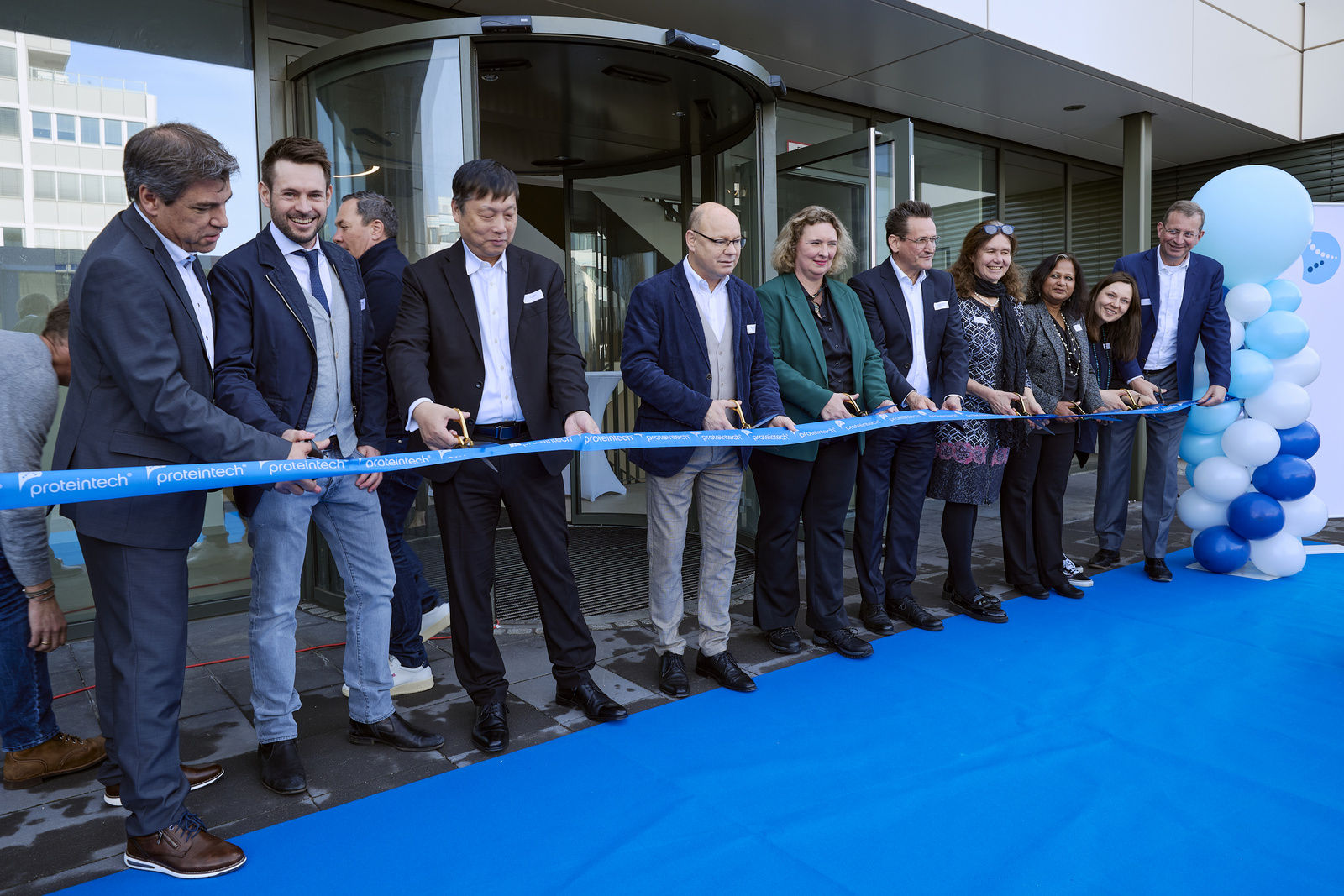- Startseite -
- Digital Bavaria -
- Blog #bytevaria - Quantum computing is gaining ground in Europe
Quantum computing is gaining ground in Europe
Google, IBM or the Chinese Internet giant Alibaba: these are currently the big names when it comes to quantum computing. Thanks to a joint initiative by the Fraunhofer Institute, which has its head office in Munich, and IBM, the first physical IBM quantum computer outside the USA is being set up in Germany. In this blog we show what quantum computing means and how Bavaria wants to drive this technology forwards in the future.
What is the purpose of quantum computing?
The incredible speed at which a quantum computer can perform calculations opens up new areas of application for computers. Previous computers easily reach their limits, especially in exponential calculations, as required for simulations and artificial intelligence. Quantum computing also promises new possibilities for organising and structuring large databases and for encrypting information. Quantum computing is therefore invaluable for the information technology and data processing industries and for research. Many possible applications of artificial intelligence can only be realised efficiently with quantum computers, since conventional computers do not have sufficient power. In times of increasing digitisation, the new computers will therefore soon become indispensable.
Quantum computing is the topic of the future
Digital Life Design, DLD for short, is one of the world's leading innovation conferences. It was founded in Munich in 2005 and has since branched out worldwide. This year, DLD brought over 1,200 guests from almost 50 countries together in the Bavarian capital Munich from 18 to 20 January 2020 to discuss the latest trends in digitisation. On the agenda several times: the topic of quantum computing and its applications. To bring the benefits of the European research landscape and user industries to the fore, we at Invest in Bavaria, together with London & Partners, organised an expert panel at the DLD that dealt intensively with quantum computing. Torsten Siebert (Fraunhofer Institute), Ian Walmsley (Imperial College London), Sebastian Luber (Infineon Technologies) and Ignacio Cirac (Max Planck Institute for Quantum Research) were invited as speakers.

All the experts agreed that there was a need for cooperation at European level in the field of quantum computing.
Ian Wamsley summed it up in a nutshell. He compared the pursuit of quantum technology with the race into space in the sixties, when it was all about being the first nation to land on the moon. The experts agreed that today, in contrast to the past, collaboration is the main focus.
IBM and the Fraunhofer-Gesellschaft have also taken this path. With over 26,600 employees, the Fraunhofer-Gesellschaft is the largest research organisation for applied research in Europe. Its head office is in Munich. Last autumn, IBM and Fraunhofer announced their intention to further develop quantum computing in Europe with a joint initiative. The two partners are united by very practice-oriented goals: together they want to make the purposeful application of quantum computers in industry possible. IBM is providing one of the best quantum computers in the world for this, its “IBM Q System One”, namely in Germany. This will be the world's first IBM computer based on quantum technology outside the USA. The entire project is being coordinated by the Fraunhofer-Gesellschaft. These partners will form a community of researchers, developers, IT experts, industrial users and decision makers under the joint umbrella of the “Fraunhofer Center for Quantum Computing”. The new possibilities of quantum computing will be directly combined with the direct application purposes in business and industry as a result.

Partnership between politics, business and research drives quantum computing forward
Germany will provide roughly 650 million euros in funding for the research and development of quantum technology between 2018 and 2022. This not only makes Germany the strongest promoter in Europe, but also the third strongest worldwide. Bavaria itself is also investing 72 million euros in the research and development of quantum computing over the next few years.
A lot is currently happening in Bavaria to speed up the research, development and application of revolutionary quantum technology. We have already talked about the partnership between IBM and the Fraunhofer-Gesellschaft, which is bringing the first quantum computer outside the USA to Germany and joining established partners from research and industry together. MCQST must also be mentioned: the Munich Center for Quantum Science and Technology. The latter is a cluster that was founded in January 2019. The main initiators are the two Bavarian elite universities, the Technical University of Munich (TUM) and Ludwig-Maximilians-Universität (LMU) , together with the Max Planck Society. The MCQST has set itself the goal of establishing a globally leading, interdisciplinary centre of expertise on quantum computing in Bavaria.
Research on quantum computing is also being conducted in Würzburg. A research institute is being established here that wants to apply topological insulators. One of the driving forces behind this is the Würzburg Julius-Maximilians-Universität (JMU). The basis for quantum computers are so-called quantum bits, which have an extremely short life span though and have proven to be of little practical use. This could be remedied by the use of topological isolators. Bavaria is supporting the establishment and operation of the "Institute for Topological Quantum Computing" as part of Bavaria's High-Tech Agenda.
These examples show that state funding, the theoretical background of science and practical applications from industry are coming together and working hand in hand to advance quantum computing in Bavaria.
Bavaria's future is promising
Studies have shown how promising Bavaria is as a business location, even across sectors. The Prognos Zukunftsatlas examines the future viability of Germany's regions every 3 years. It sees Bavaria as a forward-looking business location with almost unlimited development potential and an excellent starting position. This applies both to companies that are already established and to those that will be established in the future.

Chicago/Planegg-Martinsried: the US-based Proteintech Group triples the size of its site in Bavaria – with a key focus on research & development, production and logistics

How a passion can transform into a successful business


![[Translate to English:] [Translate to English:]](https://ik.imagekit.io/sgliwi1izsz/_processed_/2/d/csm_Invest_In_Bavaria3569_e56a97cefa.jpg?tr=w-1024 1024w, https://ik.imagekit.io/sgliwi1izsz/_processed_/2/d/csm_Invest_In_Bavaria3569_e56a97cefa.jpg?tr=w-1280 1280w, https://ik.imagekit.io/sgliwi1izsz/_processed_/2/d/csm_Invest_In_Bavaria3569_e56a97cefa.jpg?tr=w-1536 1536w, https://ik.imagekit.io/sgliwi1izsz/_processed_/2/d/csm_Invest_In_Bavaria3569_e56a97cefa.jpg?tr=w-1920 1920w)